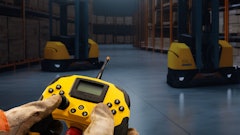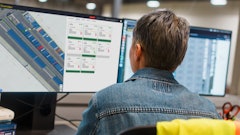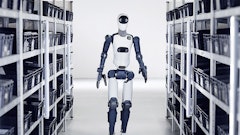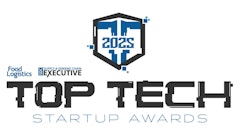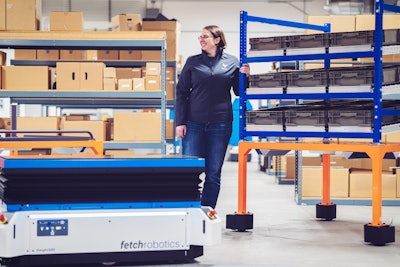
Melonee Wise, CEO of Fetch Robotics, aptly describes herself as a robot ninja. She has spent close to 20 years designing and building innovative and complex robotics systems. Along the way, she has won multiple awards and amassed 13 patents. Wise is a driving force behind the development and deployment of safe, reliable and autonomous robots across the supply chain industry. She is passionate about the direction in which her industry is heading, and serves as a mentor and role model to her team at Fetch and to the wider robotics community as a whole.
When the Coronavirus disease (COVID-19) pandemic stretched supply chains thin in 2020, Wise changed several of her robotic strategies to keep up with demand. In order to meet social distancing measures, she helped shift the company to short-distance runs between workers. In addition, she replaced forklifts with some of Fetch’s larger automated mobile robots (AMRs) to autonomously transport heavy objects.
Wise enabled flexible global warehouse automation through a combination of AMRs and Fetch’s leading cloud-based enterprise software, securing her spot as Supply & Demand Chain Executive’s 2021 Supply Chain Woman of the Year.
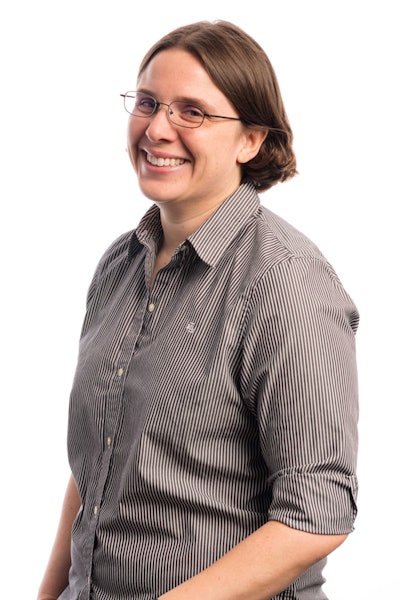 Melonee Wise, CEO of Fetch Robotics, believes that having a diverse team – whether it’s socioeconomic, gender, ethnic or religious diversity – can deliver the best results.Fetch Robotics
Melonee Wise, CEO of Fetch Robotics, believes that having a diverse team – whether it’s socioeconomic, gender, ethnic or religious diversity – can deliver the best results.Fetch Robotics
The Women in Supply Chain award honors female supply chain leaders and executives whose accomplishments, mentorship and examples set a foundation for women in all levels of a company’s supply chain network.
“This is a great honor. I’m delighted that SDCE has chosen to recognize Fetch and myself for the great work we continue to do to reinvent and transform our customers’ supply chain experience,” says Wise. “I think it’s a step in the positive direction to highlight women and to show that they can be successful in this industry.”
It hasn’t always been a smooth ride for Wise, though. Working in a startup company brought on a series of challenges. In the early days of Fetch Robotics, when products from other startups were removed from the market after being acquired, part of Wise's role as CEO was to win customers' trust and assure them that her company would be around the long-haul. On top of that, she helps people overcome the misconceptions that surround robotics by educating them on how they can benefit their organization.
“If you actually get into it, people are not afraid about losing their job because the robots are going to do their job. I think, for most people, it's pretty easy to show them that the robot can't do it all,” explains Wise. “What we encounter with people is that they're actually afraid that they're not qualified to work with robots. We spend a lot of time helping them understand that they already have the skills. We work with the customer on doing training early, bringing robots in on site earlier, to help the associates get comfortable with them and show them that they're more than capable of working with the robots. I think a lot of people have a concern that they're just too stupid, or they don't have the right training or education to continue to work with their new robot co-workers. That's very far from the truth.”
As a self-proclaimed “robot ninja,” Wise understands how automation and robotics can be viewed as “disruptive technologies” when it comes to their capabilities. She listens to her customers’ needs so that Fetch can minimize any potential disruptions when implementing new AMRs. With her support and guidance, she allows companies to be successful in ways that they couldn’t have been before.
“When we look at the whole space of supply chain, which is a very large space, I think that really understanding the customer's needs is extremely important as a leader. Listening to the problems that they have and trying to come up with creative solutions while continuing to enable them to carry out their processes the way they want,” says Wise.
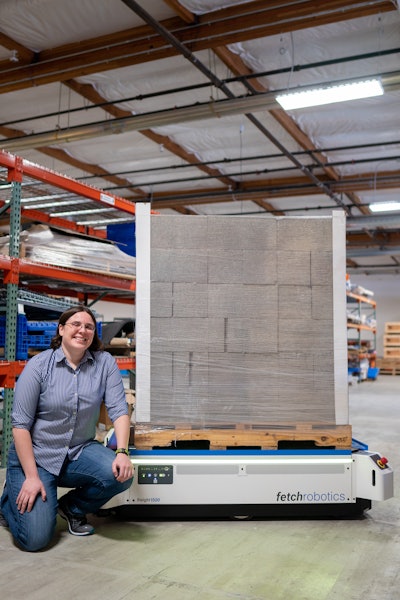 During the COVID-19 pandemic, Melonee Wise, CEO of Fetch Robotics, enabled flexible global warehouse automation through a combination of AMRs and Fetch’s leading cloud-based enterprise software.Fetch Robotics
During the COVID-19 pandemic, Melonee Wise, CEO of Fetch Robotics, enabled flexible global warehouse automation through a combination of AMRs and Fetch’s leading cloud-based enterprise software.Fetch Robotics
Working in a male-dominated field can have its downsides, though. There have been times when people have assumed that Wise isn’t a CEO, asks who she works for or makes other seemingly off-color comments. Regardless of how difficult it may be, she advises people to not take it personally and do your best to let it roll off.
“Many people are coming from a place of good intent, but a place of either lack of education, lack of information or lack of life experience. We all have our journeys. We all make mistakes. I'm not perfect - I've made many mistakes myself,” says Wise. “I think the important thing in many cases is to try to assume as much positive intent whenever possible and try to educate and inform without making it personal.”
There’s also still a lot that needs to be done in the supply chain industry in terms of recruiting and retaining a diversity of talent. Wise believes that having a diverse team – whether it’s socioeconomic, gender, ethnic or religious diversity – can deliver the best results because each person brings a different perspective to the table.
“There's been many, many studies that have shown that diverse teams have the best outcomes,” says Wise. “So, from a purely greedy perspective, a business should be striving for diversity and inclusion because it produces the best results. That is the foundational basis for why any business should be striving for inclusion.”
But, a lack of representation can hinder people from wanting to join certain industries. Wise credits the companies putting diversity and inclusion at the forefront because it’s helping shift the industry to a place where people feel more welcomed and are more likely to get better business results in the future.
“Companies need to make strong efforts to identify talent across the board and put processes in place that don't just drive individual selection because people will select people like themselves. They need to drive toward more committee-driven processes that help highlight and accentuate the capabilities and the attributes of people who are not like them through a larger committee process,” says Wise.
Wise hopes, though, that there will be a time when accolades and awards aren’t solely focused on gender or race, but rather solely on the contribution one has made within the industry. At the end of the day, what makes someone a great engineer isn’t based on their gender expression or what they look like. A great engineer is someone who puts an energy and passion into their projects, day in and day out, and works to make the community better with each decision. It’s why Wise is so good at what she does. In fact, she’s pretty great at it.
“As the industry matures, I think it will be important to move away from highlighting just one minority within a sea of minorities within the supply chain and to focus on identifying the great leaders outside of just one aspect of their biology that they have no control over,” says Wise. “I think more modern robotics is breaking away from some of that old ‘boys club.’ There's a lot more openness in the community, and we’re just starting to break down these barriers.”



![Pros To Know 2026 [color]](https://img.sdcexec.com/mindful/acbm/workspaces/default/uploads/2025/08/prostoknow-2026-color.mduFvhpgMk.png?auto=format%2Ccompress&bg=fff&fill-color=fff&fit=fill&h=100&q=70&w=100)







![Pros To Know 2026 [color]](https://img.sdcexec.com/mindful/acbm/workspaces/default/uploads/2025/08/prostoknow-2026-color.mduFvhpgMk.png?ar=16%3A9&auto=format%2Ccompress&bg=fff&fill-color=fff&fit=fill&h=135&q=70&w=240)

